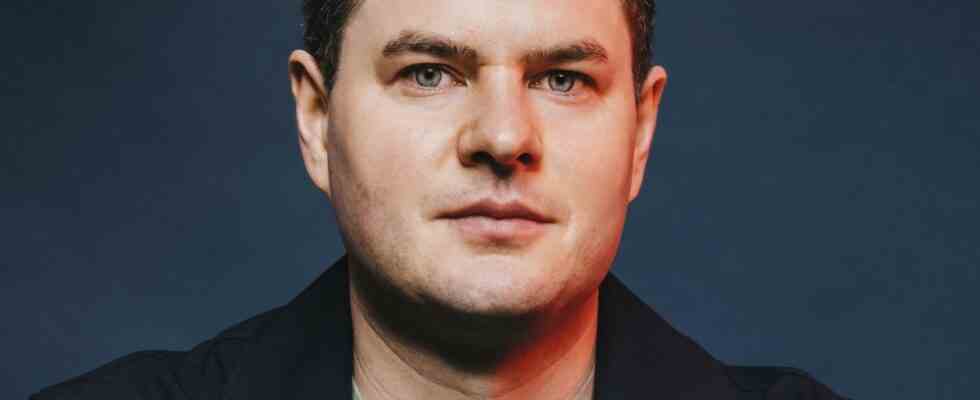In Munich’s bacon belt, nothing is actually missing. The hedges are evergreen, the beer is flowing, so is the money, and the S-Bahn runs to the city every 20 minutes. That Moritz Hürtgen, who until recently was the editor-in-chief of the satirical magazine titanic was, in this panorama of coziness chasing the spook, makes sense because there is one thing that tends to be lacking in the suburbs: excitement.
You can’t blame the novel for that. In Kirching, a fictitious community on the Munich S-Bahn, Hürtgen, who himself comes from a similar place, lets an absurd horror story run its course. Its protagonist is Martin Kreutzer, a trainee at Germany’s largest quality daily newspaper based in Berlin. At an editorial meeting in a “several gymnasium-sized” newsroom, the newspaper apprentice is sufficiently cheeky against all hierarchies – that has already promoted many journalistic careers – to bring himself into play for a prominent assignment: Martin is to portray the young artist Lukas Moretti, and as braggarts and complete idiots. That’s what the coking, politically right-wing editor-in-chief of the newspaper says. So Kreutzer goes to Munich and has to keep what he promised and have a revealing conversation with Moretti.
What is really happening in Munich and then soon in Moretti’s hometown of Kirching first brings back memories of the Claas Relotius scandal. The fact that Martin Kreutzer will fake his interview with the performance-lyric-electro-music artist Moretti is not too revealing. However, Hürtgen’s novel “The Boulevard of Terror” is not just satire for journalists from the Bavarian suburb, an area in which most of the residents are of course Siemens employees from Hanover. Martin Kreutzer increasingly gets caught up in a ghost story with a lyrical puzzle component. Because the case begins with a diatribe. This is reminiscent of a real German media story, only so much should be said.
Moritz Hurtgen: The boulevard of terror. Roman Kunstmann, Munich 2022, 304 pages, 24 euros.
(Photo: Kunstmann)
Moritz Hürtgen, born in 1989 and head of for four years titanic, has already published the volume of poetry “Angst vor Lyrik” in 2019. With an approach of being humorously creepy, or humorously humorous, the book of poems is a coherent prequel to his debut novel. The fact that Hürtgen equips a paranoid blogger who has become a Nazi leader in “Boulevard des Terrors” with toe shoes and a streamlined racing bike helmet testifies to his delight in the horror of everyday life, and possibly simply to his profound knowledge of human nature. In his description of journalists, such as Kreutzer’s colleague from mirror, who has been struggling for years in the hope of finding a permanent job, proves to Hürtgen that he knows a lot about the conditions and emotional states in German journalism. Martin Kreutzer repeatedly struggles with his job, not only when he throws all integrity overboard and falsifies the interview. He can’t remember if he’s ever really laughed since he’s been a volunteer at the newspaper.
Pleasantly enough, and despite a few subjects that would lend themselves to it – the crisis in journalism, lateral thinking, Nazis in the villages – “Boulevard des Terrors” doesn’t necessarily want to expose or criticize anything. Maybe it doesn’t matter at all which job Martin Kreutzer once imagined in order to make it to the top somewhere. The more Kirching seems to be a scene of magical realism, the more he is concerned with bare survival. No amount of blue-and-white cosiness can prevent horror from spreading through the community. People are dying everywhere and burnt trout are floating in the village pond. Or do they not and Martin just loses his mind? A fake truth, he thinks, is somehow: true.
The novel actually twists and turns things upside down in an oddly believable way, while staying goofy in just the right dose. That’s actually the style that too titanic accepted under Hurtgen. He gave up his position as editor-in-chief there in October, according to his own statement, because he had expanded the satirical magazine’s executive floor too luxuriously, “that was one massage chair too many”. In reality, a woman follows him into office for the first time, the author Julia Mateus, and Hürtgen wants to devote himself to writing from now on. Not a bad idea.

